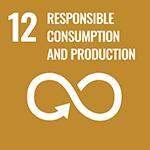Development of the Duckweed Holobiont Resource Values towards Thailand BCG Economy
Principal Investigator


Prof.
Faculty of Science, Kasetsart University
Arinthip THAMCHAIPENET
ODA Recipient Country
Kingdom of Thailand
Research Institutions in Japan
Hokkaido University / Kyoto University / Osaka University / Tohoku University / University of Yamanashi / National Institute for Environmental Studies / Saraya Co., Ltd.
Research Institutions in Counterpart Country
Kasetsart University / Khon Kaen University / Chulalongkorn University / Mahidol University / Nakhon Pathom Rajabhat University / BIOTEC / NANOTEC / Advanced GreenFarm
Adoption fiscal year
FY 2020
Research Period
5 Years
Overview of the Research Project
Establish a holobiont resource research center to study combination of duckweed and coexisting microorganisms
Contribute to the construction of a sustainable society by utilizing plants in the Lemnaceae family (duckweeds), which have high resource value and can grow in contaminated water where there is a high concentration of CO2. Specifically, (1) create a biobank of complex organisms consisting of duckweed and coexisting microbes, (2) understand and enhance microbial symbiosis that accelerates the growth rate of duckweed, (3) develop low-carbon water treatment technologies and duckweed production technologies, (4) manufacture biofuels, bioplastics, and livestock feeds, and (5) improve edible duckweed productivity and develop highly functional foods.
Develop greenhouse gas reduction technologies and valuable resources ranging from duckweed foods to biofuel
Contribute to the Bio-Circular-Green (BCG) economic model being promoted by the Thai government and to carbon offsetting by simultaneously addressing everything from development of duckweed-based bioresources to the creation of new industries.
Photo gallery
Research Project Web site
Press Release
Links
Projects
Contact Us
Japan Science and Technology Agency (JST)
Department of International Affairs
SATREPS Group
TEL : +81-3-5214-8085
Related articles by Category
- Carbon Neutrality
Environment / Energy
(Carbon Neutrality)
 Kingdom of Cambodia
Kingdom of Cambodia
Using water management to reduce methane emissions from rice paddies!
Development and Social Implementation of Greenhouse Gas Emission Reduction Technologies in Paddy Fields of West Tonle Sap Lake by Establishing a Large Paddy Area Water Management System
- Thailand
Environment / Energy
(Global-scale environmental issues)
 Kingdom of Thailand
Kingdom of Thailand
“Natural rubber seeds”, the unlimited potential hiding in natural rubber plantations
Utilization Technology of Rubber Seeds for Green Products to Mitigate Global Warming and Plastic Pollution
- Asia
Environment / Energy
(Carbon Neutrality)
 Republic of Indonesia
Republic of Indonesia
Creating a new chemical industry linked to Indonesian agriculture!
Development of Integrated Bio-circular Economy from Food and Energy Estate Waste Fraction to Biofuel and Bio-chemicals
- SDGs : Goal.15
Environment / Energy
(Global-scale environmental issues)
 Republic of Peru
Republic of Peru
Solve the challenges facing the Andean-Amazon region by sustainable forest management
Establishment of Integrated Forest Management System Model for Conservation of Mountain Forest Ecosystems in the Andean-Amazon
























